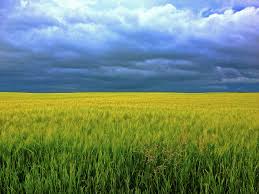Somalia is recovering from a prolonged instability and now moving from emergence to development programming, and because of that we have come to realize how important to have an entity to help transform the agriculture sector. Establishment that has the capacity to conduct scientific studies on our national resources and through the research creates opportunities to improve the livelihood of both the Somali people and domestic animals.
Currently, our agency is strategically positioned to mitigate the drought risk by introducing modern farming and conducting community awareness to cultivate fodder to safe their livestock, generate house base income and aiming to safe many human lives.
Why we Choose Fodder Farming in Somalia?
Fodder farming for animal feed production is important in Somalia for several reasons:
1. Livestock-dependent economy: Somalia’s economy heavily relies on livestock, with the majority of the population engaged in pastoralism. Fodder farming ensures a stable and sufficient food supply for the animals, which is vital for the livelihoods of many communities.
2. Drought resilience: Somalia is prone to frequent droughts and erratic rainfall patterns. Fodder farming helps build resilience against these climatic challenges by providing an alternative source of feed when natural grazing lands become scarce.
3. Improved animal health and productivity: Proper nutrition through fodder farming enhances the health and productivity of livestock, leading to better reproduction rates, higher milk yields, and healthier animals overall.
4. Economic sustainability: Investing in fodder farming can reduce the reliance on imported animal feed, contributing to economic sustainability and local food security.
5. Food security: Fodder farming plays a crucial role in ensuring a stable supply of animal feed, which, in turn, supports food security for both the local population and livestock.
6. Environmental conservation: With well-managed fodder farming practices, there can be a positive impact on the environment, such as soil conservation and reduced pressure on natural grazing lands, helping to preserve fragile ecosystems.
7. Income generation: Fodder farming can create additional income streams for farmers and pastoralists by selling surplus animal feed to other livestock owners or markets.
We believe, by recognizing the importance of fodder farming, Somalia can enhance its agricultural resilience, support the livestock sector, and contribute to overall socio-economic development.
.

